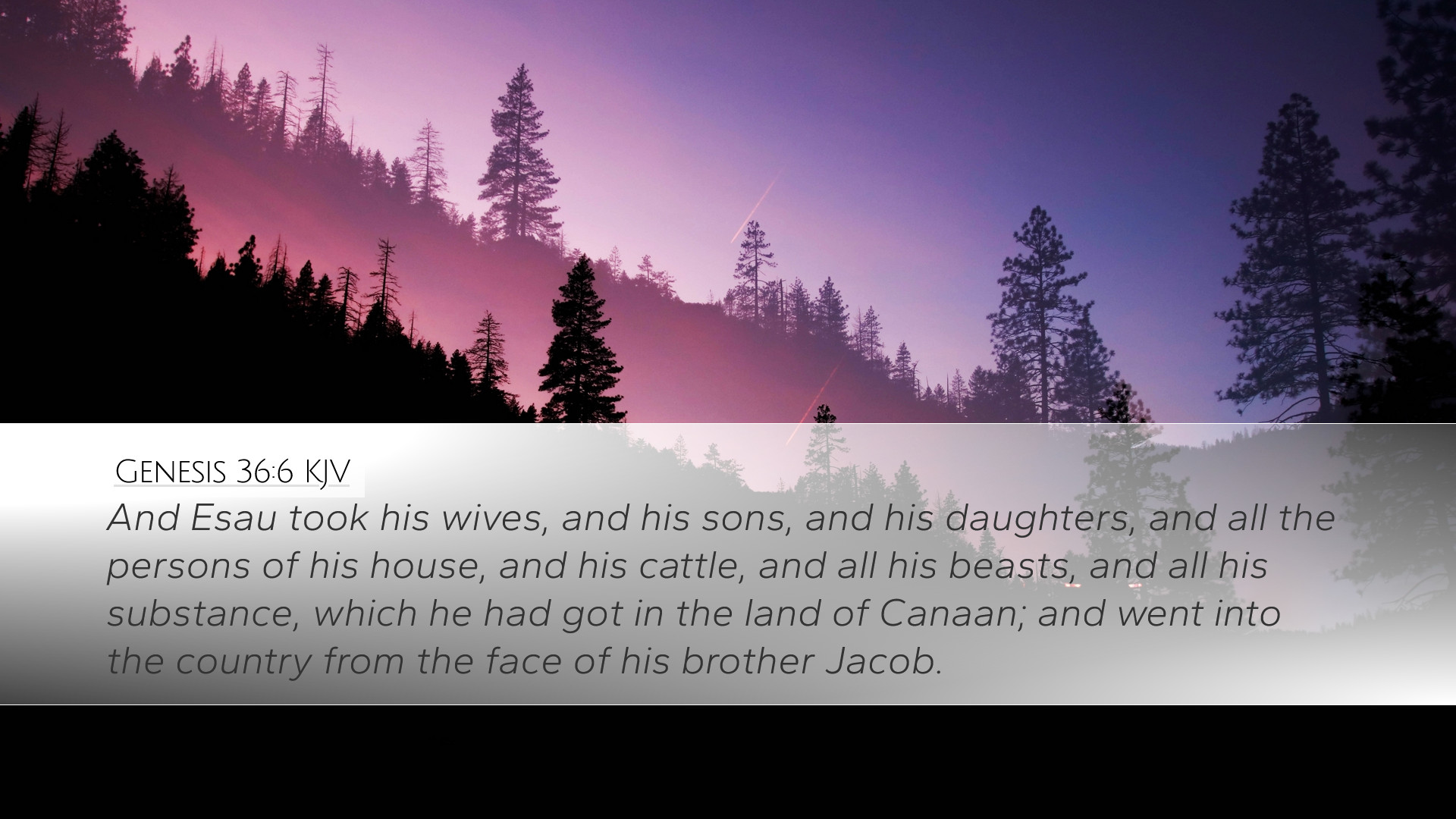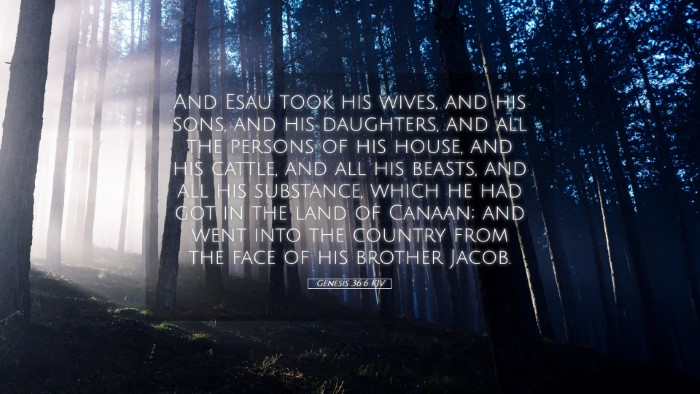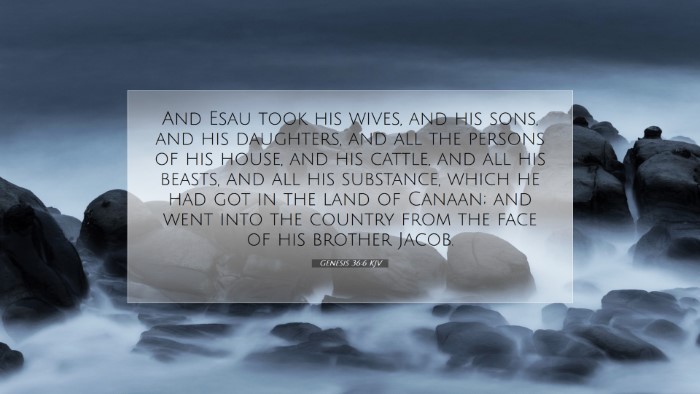Commentary on Genesis 36:6
Verse Overview: Genesis 36:6 states, “And Esau took his wives, and his sons, and his daughters, and all the persons of his house, and his cattle, and all his beasts, and all his substance which he had got in the land of Canaan, and went into the country from the face of his brother Jacob.” This verse serves as a transition in the narrative, marking Esau's departure from Canaan and provides a significant look at the life of Esau, the brother of Jacob.
Contextual Background
In examining Genesis 36:6, it is essential to consider the broader context of the chapter, which recounts the genealogy of Esau and the nation that descended from him. Esau, known for selling his birthright, lived a life characterized by his choice of material wealth and earthly possessions, which contrasts sharply with Jacob's spiritual inheritance.
Insights from Public Domain Commentaries
Matthew Henry's Commentary
Matthew Henry observes that Esau's departure from Canaan signifies a key moment in the biblical narrative. He emphasizes how Esau took all his family and possessions and left the land promised to Abraham and his descendants. This is interpreted as symbolic of Esau's choice in prioritizing temporal over spiritual values. Henry highlights Esau's choice to dwell in Seir, away from the promise given to his forefathers, thus indicating a separation from the covenant community.
Albert Barnes' Notes on the Bible
Albert Barnes provides an analysis of the phrase “went into the country from the face of his brother Jacob.” This phrase captures the emotional gravity of the event—Esau’s decision to separate from Jacob was both a physical and spiritual relocation. Barnes points out that Esau's departure illustrates the complexities of familial relationships, particularly within the context of rivalry and reconciliation. He notes that while Jacob remained in Canaan, Esau's movement away signifies a divergence in their paths set forth by God’s covenant promise.
Adam Clarke's Commentary
Adam Clarke notes that Esau's family, described in this verse, included his wives and children, highlighting the importance of lineage in the ancient context. Clarke explains that the enumeration of Esau's possessions serves to affirm his richness and success in worldly terms, which he obtained outside of the covenant blessings bestowed upon Jacob. He critiques Esau's choice to settle in Seir, suggesting it embodies a pursuit of prosperity that ultimately distances him from divine purpose and blessing.
Theological Implications
The separation of Esau from Jacob encapsulates the overarching themes of choice and consequence, common throughout scripture. The verse illustrates how personal decisions can lead to divergence from divine intentions. For pastors and theologians, this highlights the importance of understanding the implications of our choices in relation to God's plans. It encourages believers to reflect on their priorities: whether they are pursuing earthly gains or striving for spiritual fulfillment.
Application for Modern Readers
- Self-Reflection: As we navigate our own lives, we must ask ourselves whether our pursuits align with God's will or lead us away from the spiritual community.
- Value of Community: Understanding the importance of choosing companionship and community that encourages us toward God’s promise rather than away from it.
- Family Legacy: Esau's actions spark conversations about how familial and ancestral legacies can shape our identities and choices today.
- Spiritual vs. Material Wealth: Encouraging reflection on how we balance our lives between seeking spiritual growth versus accumulating worldly possessions.
Conclusion
Genesis 36:6 serves as a critical juncture in the narrative of Esau’s life, illustrating the perils of prioritizing earthly possessions over divine promises. The insights derived from public domain commentaries enrich our understanding of the text, pushing readers—be they pastors, students, or scholars—to contemplate the significance of their own life choices. As we study the life of Esau, may we endeavor to align our hearts with God's will, seeking the eternal over the temporal, and recognizing our place in the larger narrative of God's covenant.


